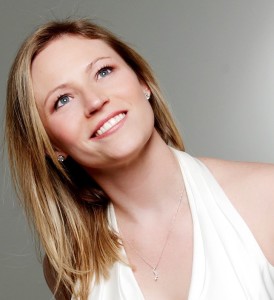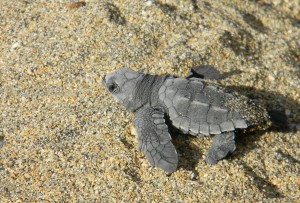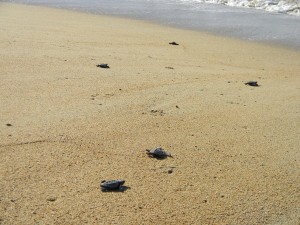…because I know their plan to kill the pregnant queen.
 Standing on the ruins of a Minoan Palace, I heard that young voice begging for help. From that moment on, those stones, which had been set over 4,000 years ago, were symbols for the stories of an ancient civilization. This was a place where people had lived, loved, and died. Where they sought refuge from natural disasters and storms. Where politics ruled and religion tried to rationalize and explain the unknowable. Where engineering feats and hard work created structures and infrastructure that still exist today. It was where I found a novel-worthy story.
Standing on the ruins of a Minoan Palace, I heard that young voice begging for help. From that moment on, those stones, which had been set over 4,000 years ago, were symbols for the stories of an ancient civilization. This was a place where people had lived, loved, and died. Where they sought refuge from natural disasters and storms. Where politics ruled and religion tried to rationalize and explain the unknowable. Where engineering feats and hard work created structures and infrastructure that still exist today. It was where I found a novel-worthy story.
That’s the beauty of stepping away from the keyboard, away from the office, and most importantly, the familiar. When I do that, I clear my mind enough to ask the all important what-if questions. That’s what works for me. If I’m ever stuck for ideas (which I rarely am) I go see or do something new.
But I don’t need to go somewhere exotic or ancient to be inspired. For me, it can be as simple as a break in the routine.
I live near a wildlife park which is a protected park in the city. It’s got deer, coyotes, and the occasional wild cat or bear wandering through – a five minute walk 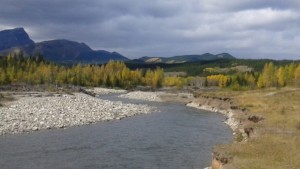 and I’m in the wilderness. A creek which is a raging torrent when the snow melts off the mountains becomes a docile meander in the summer. It’s here where I can leave the familiar, and rest my brain. There, in the quiet, I imagine people foraging and hunting. I see wizards and knights in great adventures. Then there are dragons, faces in rocks, the Green People in the trees and entire kingdoms where life and death struggles occur. This is where I can watch a beetle crawl and wonder what it’d be like to mine precious minerals on Mars or hear a woodpecker tapping and wonder what message he brings.
and I’m in the wilderness. A creek which is a raging torrent when the snow melts off the mountains becomes a docile meander in the summer. It’s here where I can leave the familiar, and rest my brain. There, in the quiet, I imagine people foraging and hunting. I see wizards and knights in great adventures. Then there are dragons, faces in rocks, the Green People in the trees and entire kingdoms where life and death struggles occur. This is where I can watch a beetle crawl and wonder what it’d be like to mine precious minerals on Mars or hear a woodpecker tapping and wonder what message he brings.
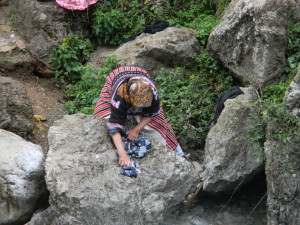 I may or may not decide to use these imaginings in new or existing stories. This distraction is simply fun for my brain – it gives it a rest and if I’m lucky, it inspires story worthy ideas. When go back to writing, I feel creatively rested and sometimes if I’m lucky, a story problem has been subconsciously resolved.
I may or may not decide to use these imaginings in new or existing stories. This distraction is simply fun for my brain – it gives it a rest and if I’m lucky, it inspires story worthy ideas. When go back to writing, I feel creatively rested and sometimes if I’m lucky, a story problem has been subconsciously resolved.
In new situations, I stop thinking and just let myself feel, smell, hear, and observe from different perspectives. My imagination relaxes and has fun free-associating, and it rises to the challenge of answering the what-if questions.
I can’t explain how I can see political intrigue, religious zealotry, and murders 4,000 years ago in a rock. Or, how a wild life park can inspire a trilogy which addresses coming of age themes. Or how an aerial view from an airplane threw me into an alternate universe. Or how that beetle ended up on Mars…
What I do know is that when I suspend my everyday headspace, stop my mental machinations and give my imagination the freedom to play – strange and wonderful things happen.
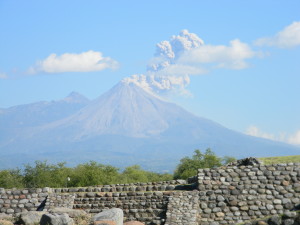 For example, this winter I was in Colima Mexico, at the Platform ruins. While there, Mexico’s most active volcano sent plumes of smoke into the sky. I stood near a boulder which had been shot from the volcano 3,000 years ago. That boulder and others had been thrown over 30 miles and they landed in a heavily populated settlement. I wondered how people interpreted this powerful natural event. Their ability to engineer places to live was quite advanced but they didn’t understand the science behind the volcano’s dangerous fickleness. So as I watched the volcanic plumes, I imagined how they’d react to it and what their lives would have been like. Then, I was an archeologist a thousand years from now, digging through the remains of both our modern world and the ancient world. What if?
For example, this winter I was in Colima Mexico, at the Platform ruins. While there, Mexico’s most active volcano sent plumes of smoke into the sky. I stood near a boulder which had been shot from the volcano 3,000 years ago. That boulder and others had been thrown over 30 miles and they landed in a heavily populated settlement. I wondered how people interpreted this powerful natural event. Their ability to engineer places to live was quite advanced but they didn’t understand the science behind the volcano’s dangerous fickleness. So as I watched the volcanic plumes, I imagined how they’d react to it and what their lives would have been like. Then, I was an archeologist a thousand years from now, digging through the remains of both our modern world and the ancient world. What if?
These experiences all have one thing in common – I experienced different sensory inputs than I normally do at home, in my office. An airplane, a log by a creek, ancient ruins – these places all have different sensory experiences. I touched a rock and saw a civilization. The breeze caressed my skin and it carried the smell of the ocean – was it a calming fragrance or the scent of a coming storm? The volcano’s plume was astounding but was it the gentle breath of the fiery god or his sulfurous wrath? I saw the relief of a continent and wondered about its fantastic and mythological societies. Leaves rustling, parched greens of summer, hot sand scorching my feet, the foraging of foods grown wild, the rich flavors of local spices, sitting on the deck, watching a lady bug traverse the whorl on the wooden deck board ….
The imagination is so filled with possibilities and stories. Changing my headspace, getting away from the everyday familiar to experience different sensory inputs, all give my imagination room to play. This is how I let my life experiences shape my writing.

